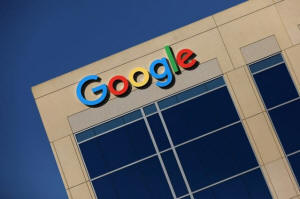|
In Silicon Valley, much-feared tax bill
pays dividends for workers
 Send a link to a friend
Send a link to a friend
 [December 22, 2017]
By Paresh Dave, Heather Somerville and Jeffrey Dastin [December 22, 2017]
By Paresh Dave, Heather Somerville and Jeffrey Dastin
SAN FRANCISCO (Reuters) - The U.S. tax
overhaul is a boon to Silicon Valley technology companies like Apple Inc
<AAPL.O> and Alphabet Inc <GOOGL.O>, which will enjoy big tax cuts and
the chance to bring back billions of dollars from overseas at a reduced
rate.
And contrary to the dire warnings of California officials, a large swath
of Bay Area workers and their families stand to get a tax break as well,
even with new limits on state and local tax deductions.
California has the highest state income tax in the nation, and Governor
Jerry Brown has called the new tax bill "evil in the extreme."
Nonetheless, many in Silicon Valley stand to benefit. Startup employees,
freelancers and venture capital investors are among those who will get
new tax benefits or keep those they already have, tax experts said.
Even some of the middle- and upper-income professionals who form the
core of the technology industry workforce will still get significant tax
cuts, while most others will see little change, they said.

The new $10,000 cap on state and local tax deductions will have a less
dramatic effect than feared because such deductions in many cases had
already been rendered moot by the alternative minimum tax (AMT), a
mechanism for assuring that the well-heeled pay at least 26 percent of
their income in taxes.
"There is a lot of noise about workers in California, New Jersey, New
York and Illinois (facing higher taxes), but 80 percent of our clients
there were already paying the alternative minimum tax so they don't
benefit from the state and local deductions," said Jack Meccia, a tax
associate at financial planning firm Vestboard, which works with several
hundred individuals in tech.
The new law alters the AMT in a way that vastly reduces the number of
people who have to pay it, from more than 5 million to an estimated
200,000 next year, according to the Tax Policy Center. The AMT dynamics,
combined with reduced overall tax rates and the doubling of the standard
deduction to $24,000 should hold most Bay Area tax bills steady, said
Bob McGrath, tax director at accounting firm Burr Pilger Mayer.
Estimates by three experts, using roughly similar assumptions, show that
a home-owning couple earning a combined $250,000 in Silicon Valley would
likely see an increase or decrease in their tax bill of a few hundred
dollars.
A married couple with no children who rent a home and make a combined
$150,000 would see a $3,900 tax cut, estimated Annette Nellen, who
directs the master's degree in taxation program at San Jose State
University.
Low-income workers will see tax cuts too, though the dollar amounts are
small.
Bob Emmett, a single, 73-year-old security officer who lives in San
Jose, criticized the bill as "designed to help the rich."
Nellen estimated that Emmett, who rents an apartment, has no children
and earns $16 an hour in addition to some social security income, would
see a $546 cut in taxes.

Critics of the tax bill note that the individual tax cuts will disappear
after 2025, and that most of the benefits flow to the corporations and
the wealthiest individuals, even if lower-income people get some tax
relief.
[to top of second column]
|

The Google logo is pictured atop an office building in Irvine,
California, U.S. August 7, 2017. REUTERS/Mike Blake/File Photo

Health insurance premiums for Californians are also likely to rise
substantially as a result of the repeal of fines for those who
refuse to obtain health coverage under the Affordable Care Act. And
even if Bay Area residents mostly enjoy some tax cuts, they gain
much less than those in low-tax states.
STARTUP WINNERS
Employees in Silicon Valley, the world's startup capital, scored two
major victories in the tax bill.
First, startup employees can hold off on paying taxes related to
stock options they exercised. That can be a big help if a company is
still private, since in that situation employees have to pay tax
even before they can earn cash from selling shares.
Startup employees will also have more opportunity to exercise what
are known as "incentive stock options" with less chance of being on
the hook for the alternative minimum tax, according to Mark Setzen,
a long-time certified public accountant in Silicon Valley.
Also coming out ahead are independent contractors, ranging from
engineers to marketers to caterers, who stand to benefit from a new
20 percent deduction of business income.
Arun Sood, a freelance software engineer in San Francisco who makes
about $150,000 annually, said he accrues few deductions because he
rents his home, holds no debt and has no children. Now he gets a big
new deduction and a lower tax rate.
"Looking at this selfishly, it's going to be a positive impact,"
said Sood, who has freelanced for Axios, Cisco and Macy's.
The tax plan mostly preserves a tax break for venture capitalists
that had been in jeopardy. The so-called carried interest provision
lets venture capitalists book the 20 percent fee they typically take
on a profitable investment as a capital gain, which carries a lower
tax rate than ordinary income, even though the venture investors do
not put up any of their personal capital.

Now the capital gains rate will apply only to investments held at
least three years -- a limitation that venture capitalists said
would come into play only occasionally.
Silicon Valley executives with high salaries will take home extra
money, too, because language in the current tax law known as the
Pease Limitation had already limited their deductions, said Andrew
Mattson, a tax partner serving technology industry clients at
accountancy Moss Adams.
Executives also may see base pay rise in coming years. The tax bill
removes corporate tax breaks for performance bonuses, which is
already leading companies to reconsider pay packages for chief-level
executives, lawyers said.
(Reporting by Paresh Dave, Heather Somerville, Jeffrey Dastin and
Salvador Rodriguez; Editing by Jonathan Weber and Lisa Shumaker)
[© 2017 Thomson Reuters. All rights
reserved.]
Copyright 2017 Reuters. All rights reserved. This material may not be published,
broadcast, rewritten or redistributed. |